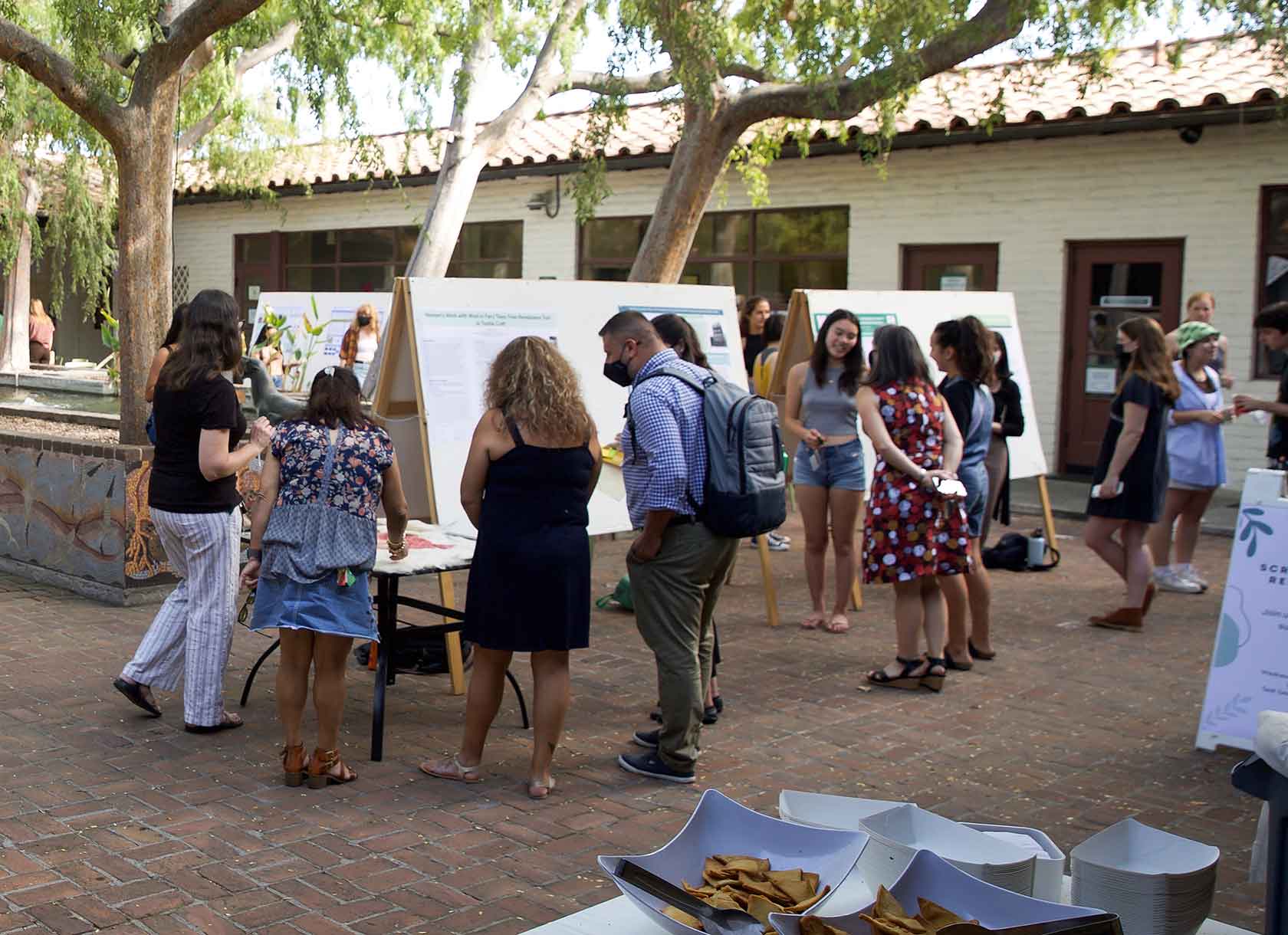By Ella Boyd ’22

On September 22, Scripps students presented the results of their summer research at the annual Summer Research Tea, a celebration of the academic opportunities made possible through fellowships provided by Scripps College.
Each summer, Scripps College supports student research projects through the Johnson Summer Research Grant, the Scripps Undergraduate Fellowship in Environmental Analysis, the Racial Justice and Equity Fund, the Esterly Award, the Mellon Interdisciplinary Humanities Initiative, and the Arthur Vining Davis Student Summer Library Internship. Through these funding opportunities, students pursue faculty-directed research projects or conduct their own research with faculty endorsement.
“The Research Tea provides a community forum to share and celebrate student research, and is excellent preparation for a Capstone Day presentation, a conference presentation, and public speaking at and beyond Scripps,” says Jennifer Armstrong, associate dean of faculty, fellowship advisor, and professor of biology. “It promotes community by giving students the opportunity to learn about the research of their peers and share their experiences during the many conversations.”
This year, 26 students were awarded summer fellowships. Their presentations focused on a variety of topics, including projects titled “Investigating Reproductive Protein Evolution in Native Monkey Flowers” and “Isolation and the Self: A Correspondence with History’s Loneliest Characters.”
For Abigail Tulenko ’22, whose research focused on the history of female mystical experiences within the patriarchal structure of the Catholic Church, the presentations couldn’t have come at a better time. “In addition to presenting my project, it was great to get to hear about the amazing research other Scripps students did this summer,” she says. “The genuine interest and support from fellow students and faculty was wonderful to see. Especially after the past year, it was great to be back in person sharing and learning from the Scripps community.” Armstrong agreed, stating that “the joy in the courtyard was palpable.”
Scripps recently expanded its communication about these opportunities by creating an Instagram account, @scripps.fellowships, designed to promote research, scholarship, and fellowship opportunities, as well as highlight student achievements. The account, which now boasts a link tree to opportunities, info sessions, and resources, is currently running a series highlighting students’ summer research through short videos where students discuss their research and the fellowships that made them possible. “Students have found that by telling their own research stories on social media, it’s easier to share with their peers and family,” Armstrong says.
So far, the page has proven helpful: Although Tulenko found out about the Esterly Award via the fellowships website, she says the Instagram account was a good resource. “It was helpful to hear from past students who had done similar fellowships, and to learn more about their experiences,” she says. “It’s also a great place to hear about all the really interesting work students have done over the years.”
Going forward, Tulenko plans to continue working on her upcoming novel, An Unsubstantial Territory, which is partly based on the research she conducted this summer. She says that the Esterly Award played a large role in the success she has seen with her project thus far: At the end of the summer, she signed with the Friedrich Agency, a New York-based literary agency, to represent the book. She urges other students to take advantage of the fellowship opportunities, noting that the Esterly Award’s financial support provided her with the time and space to write. “I would just encourage other students to apply,” she says. “There are so many great opportunities that Scripps offers that can go a long way toward making your academic or creative projects possible.”

